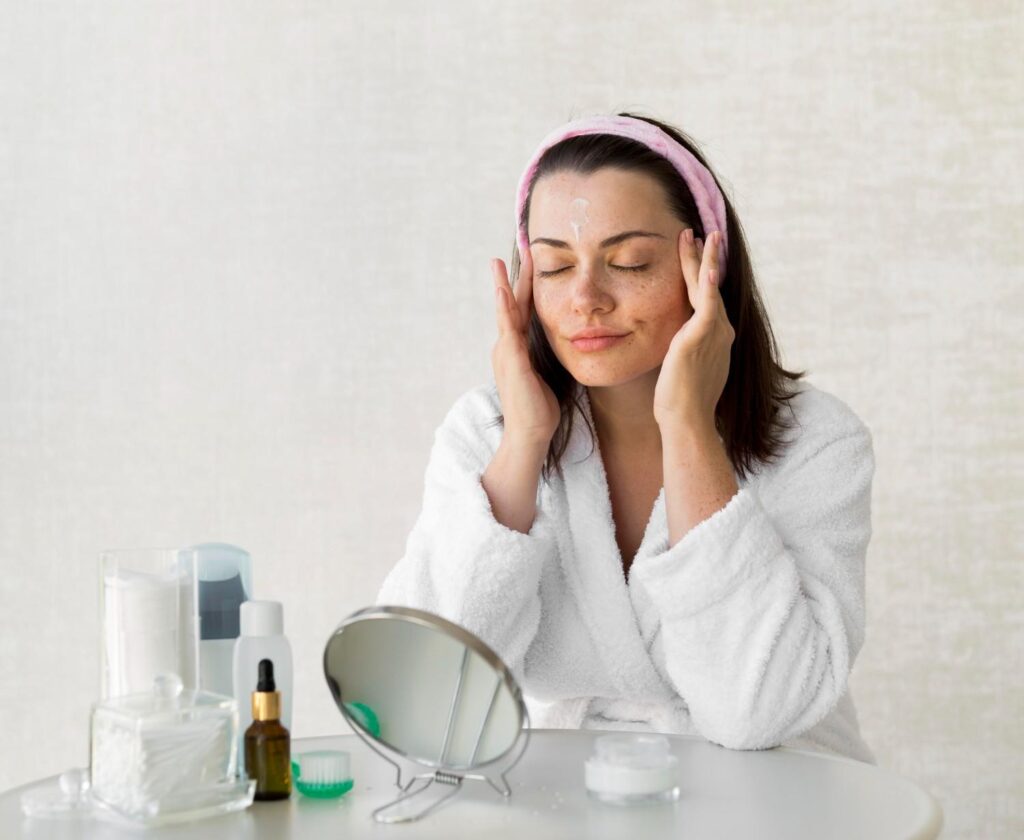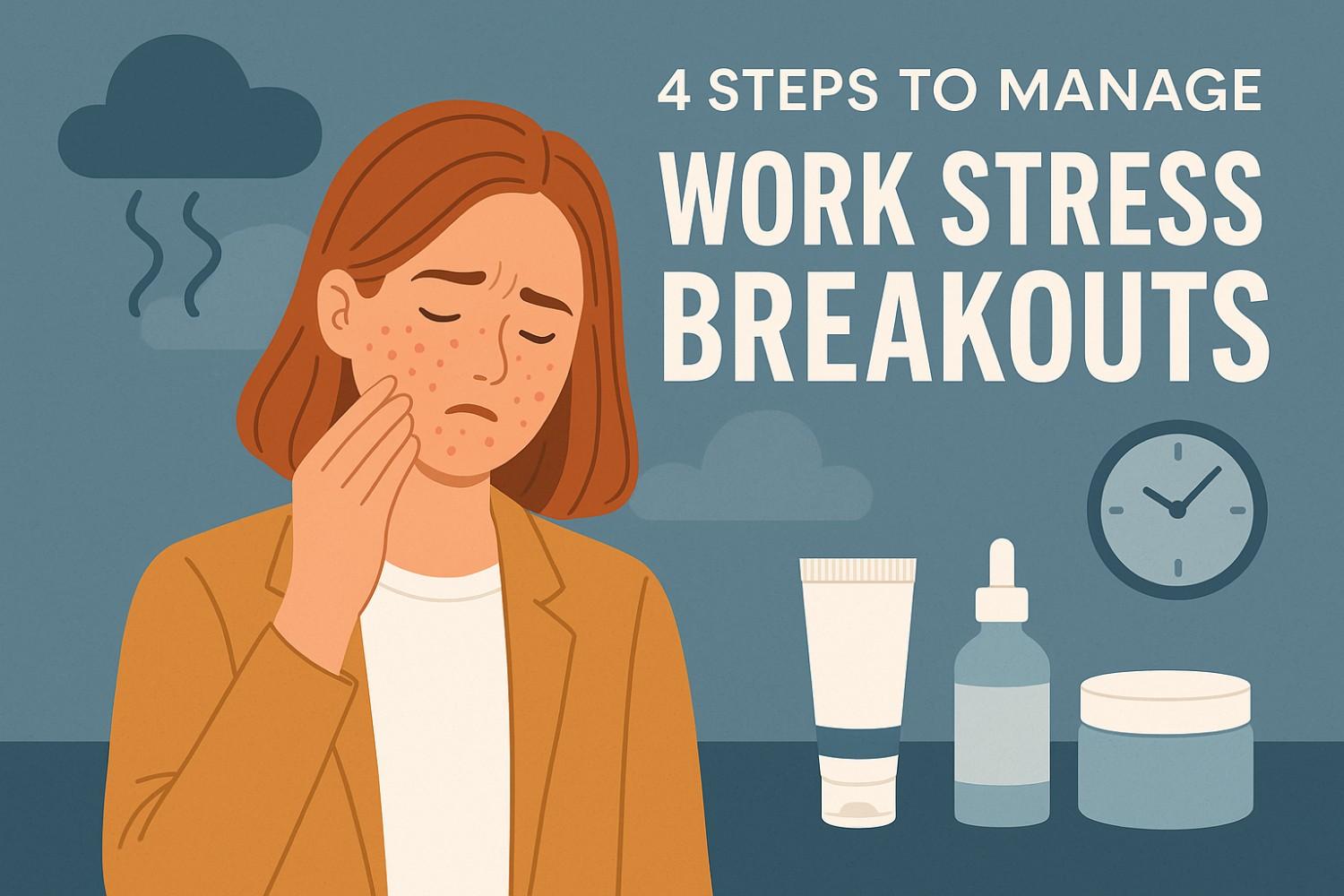The pressure of a demanding job doesn’t just affect your mind; it can show up on your face. You’re juggling deadlines, navigating team dynamics, and pushing for that next promotion, only to be met with a new breakout in the mirror. This isn’t a coincidence. The link between stress and skin health is well-documented, with many people experiencing flare-ups during particularly challenging periods at work.
When you’re stressed, your body produces more cortisol, a hormone that can trigger your skin’s oil glands to go into overdrive. This excess oil, combined with dead skin cells and bacteria, creates the perfect environment for acne. While you can’t always eliminate work stress, you can learn to manage its impact on your skin. This guide will walk you through four effective strategies to help you regain control over your complexion and keep stress-related breakouts at bay.
1. Establish a Consistent, Non-Irritating Skincare Routine

When your skin is already inflamed from stress, the last thing it needs is a complicated or harsh skincare routine. Consistency with gentle products is your best defense. Over-washing or using aggressive treatments can strip your skin of its natural moisture barrier, leading to further irritation and even more breakouts. The goal is to calm, soothe, and protect.
Start with the basics: a gentle cleanser, a lightweight moisturizer, and a broad-spectrum sunscreen. Look for products with calming ingredients like niacinamide, which helps reduce inflammation, or hyaluronic acid to keep your skin hydrated without clogging pores. In the evening, cleansing is non-negotiable to remove the day’s accumulation of oil, makeup, and pollutants. A study published in the Journal of Clinical and Aesthetic Dermatology highlights that a simple, consistent skincare regimen is fundamental in managing acne. By creating a predictable routine, you provide your skin with the stability it needs to recover and defend itself against stress-induced flare-ups.
2. Prioritize Stress-Reduction Techniques

Since the root cause of these breakouts is stress, managing your stress levels is just as important as what you put on your skin. Integrating stress-reduction techniques into your daily life can have a profound effect on your complexion. This doesn’t have to mean overhauling your entire schedule; even small, consistent practices can make a big difference.
Consider incorporating mindfulness or meditation into your morning or evening. Just 10 minutes of guided breathing can help lower cortisol levels. Regular physical activity is another powerful tool. Exercise increases blood flow, which helps nourish skin cells, and it’s a proven mood booster. The American Psychological Association notes that even a brisk walk can stimulate anti-anxiety effects. Find what works for you, whether it’s yoga, journaling, or simply stepping away from your desk for a few minutes to stretch. By actively working to lower your stress, you’re tackling the problem at its source, leading to clearer skin and a calmer mind.
3. Focus on a Skin-Friendly Diet and Hydration

What you consume has a direct impact on your skin’s health, especially when your body is under stress. During busy work periods, it’s easy to reach for sugary snacks or caffeine for a quick energy boost. However, high-glycemic foods and excessive dairy have been linked to an increase in acne for some individuals. While you don’t need to cut out these foods entirely, being mindful of your intake can be beneficial.
Instead, focus on incorporating anti-inflammatory foods into your diet. These include leafy greens, berries, fatty fish rich in omega-3s (like salmon), and nuts. These foods help combat inflammation from the inside out. Equally important is hydration. Drinking enough water throughout the day helps flush out toxins and keeps your skin cells plump and functioning optimally. Aim for around eight glasses of water a day. Think of it as part of your skincare routine—hydrating from within is a simple but effective step toward a clearer complexion.
4. Know When to Seek Professional Help

Sometimes, despite your best efforts with over-the-counter products and lifestyle changes, stubborn breakouts persist. If your acne is severe, painful, or impacting your self-esteem, it may be time to consult a professional. A dermatologist can offer a more personalized and effective treatment plan than you can achieve on your own. They can properly diagnose the type of acne you have and determine if it’s truly stress-related or if other factors are at play.
A specialist can prescribe treatments like topical retinoids, oral medications, or other procedures that are more potent than what’s available at the store. Trying to manage severe acne alone can sometimes lead to more frustration and potential scarring. Getting expert advice from a dermatologist in Salt Lake City can provide you with a clear, effective path forward, saving you time, money, and stress in the long run. There’s no need to struggle alone when professional guidance is available.






